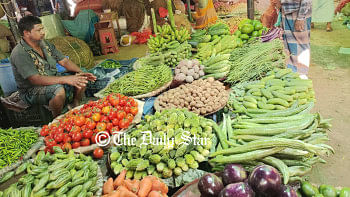Poised for a good turn

Bangladesh: Ready to run. Mark Shaver/ getty images
WHEN the nation has been yearning for a piece of good news amidst the power, gas and water crunch, the news that Bangladesh has scored good figures in the first-ever global ratings on economy bears a special significance for all of us.
The US based global rating agency Standard and Poor's (S&P) has assigned BB to Bangladesh, with a stable outlook for the financial sector. Moody's Investor Service, another US based global rating agency, announced its sovereign credit rating for Bangladesh as Ba3 on April 12, just a week after S&P's rating.
The BB and Ba3 of sovereign credit ratings have placed Bangladesh higher than Pakistan and Sri Lanka, and in the same rank as Vietnam, Philippines, Indonesia and Turkey. The rating agencies mentioned the resilience of the Bangladesh economy to external shocks as well as domestic stress as a positive indicator. The strong and resilient readymade garment (RMG) sector as well as the robust inflow of migrant workers' remittances underpinned the economic growth.
Standard and Poor's operates as a financial services company worldwide. Its products and services include credit ratings, equity research and providing information and workflow solutions to a particular debt security or other financial obligation. Over the years, its credit ratings have achieved wide acceptance of investors as convenient tools for differentiating credit quality.
Moody's Investor Service also performs financial research and analysis on commercial and government entities. The company also ranks the credit-worthiness of borrowers through using a standardised ratings scale. Moody's credit rating system is increasingly becoming sophisticated.
Bangladesh is a country globally known for its poverty, corruption, violence and natural calamities. But these are not all that the country is about. There are some positives that discerning eyes cannot fail to see. Bangladesh has made positive strides in education, life expectancy and rural development. Literacy rates have increased remarkably, though the quality of education is yet to be improved.
The country has made remarkable progress in human development. Each year since 1990 the Human Development Report has published the Human Development Index (HDI), which looks beyond GDP to a broader perspective of well-being. The HDI for Bangladesh (2009) is 0.543, which gives it a rank of 146 out of 182 countries. Among the medium human development in Asia, Bangladesh is ranked above Pakistan, Myanmar, Nepal, Cambodia and Yemen.
The HDI measures the average progress of a country in terms of human development. But the Human Poverty Index (HPI) focuses on the proportion of people below certain threshold levels in each of the dimensions of the HDI. The HPI value of 36.1 percent for Bangladesh ranks it 112th among 135 countries for which the index was calculated.
Bangladesh has advanced its position in global competitiveness, marked by a 5-stage leap from last year's position. The Global Competitiveness Report (GCR) is a yearly report published by the World Economic Forum. The 2009-10 report, covering 134 major and emerging economics across the world, ranks Bangladesh 106th (from 111th in 2008-09), though the power and gas crunch are major hurdles to achieving better business competitiveness.
The country's economic freedom score of 51.1 percent makes its economy the 137th freest in the global index of 2010. Its overall score is 3.6 points higher than last year's. Bangladesh is ranked 29th out of 41countries in the Asia-Pacific region in economic freedom.
The US-based Heritage Foundation and the Wall Street Journal index of economic freedom 2010 ranks Bangladesh 137th out of 179 countries. The country has enjoyed impressive economic growth of around 6 percent per year over the last 5 years, driven mainly by its strong and resilient RMG sector.
Bangladesh has also performed well in the global environmental scene. The Environmental Performance Index 2010 ranks 163 countries on 25 performance indicators tracked across 10 policy categories, covering environmental public health and ecosystem vitality. Bangladesh, which is ranked 139th with 44.6 score, is placed above North Korea, Cambodia, Iraq and UAE.
The country was ranked 119 out of 135 countries in terms of the factors influencing FDI, in a study carried out by the renowned international magazine Forbes. It revealed that the capital hospitality of Bangladesh has been dragged down, scoring only 32.6 out of 100 in the Capital Hospitability Index. The Forbes study also said that Bangladesh slipped below its South Asian neighbours due to rampant corruption, poor competitiveness and technological backwardness.
The recent rankings and ratings of the economy give investors insight into the level of risk associated with investing in Bangladesh. To give investors confidence in investing in their country, many countries seek ratings from credit rating agencies like Standard and Poor's, Moody's, and Fitch to provide financial transparency and demonstrate their credit standing.
The country, for the first time, has got sovereign credit ratings from two global rating agencies, indicating a favourable position for investment compared with other South Asian nations. These ratings will create confidence and provide access to capital for development. This is a vital benchmark, which is likely to have positive impact on FDI.
Bangladesh has a number of positive attributes that can successfully attract the attention of foreign investors from both the developed and the developing countries. The increasing availability of skilled and unskilled labour at relatively low wages and the success in maintaining a reasonably stable macroeconomic environment have made the country an attractive destination for foreign investors.
Bangladesh, which has performed better in some global rankings and ratings compared to its neighbours, is poised for a good turn. It may soon emerge as yet another Asian Tiger if its positive indicators are put to optimal use.

 For all latest news, follow The Daily Star's Google News channel.
For all latest news, follow The Daily Star's Google News channel. 



Comments